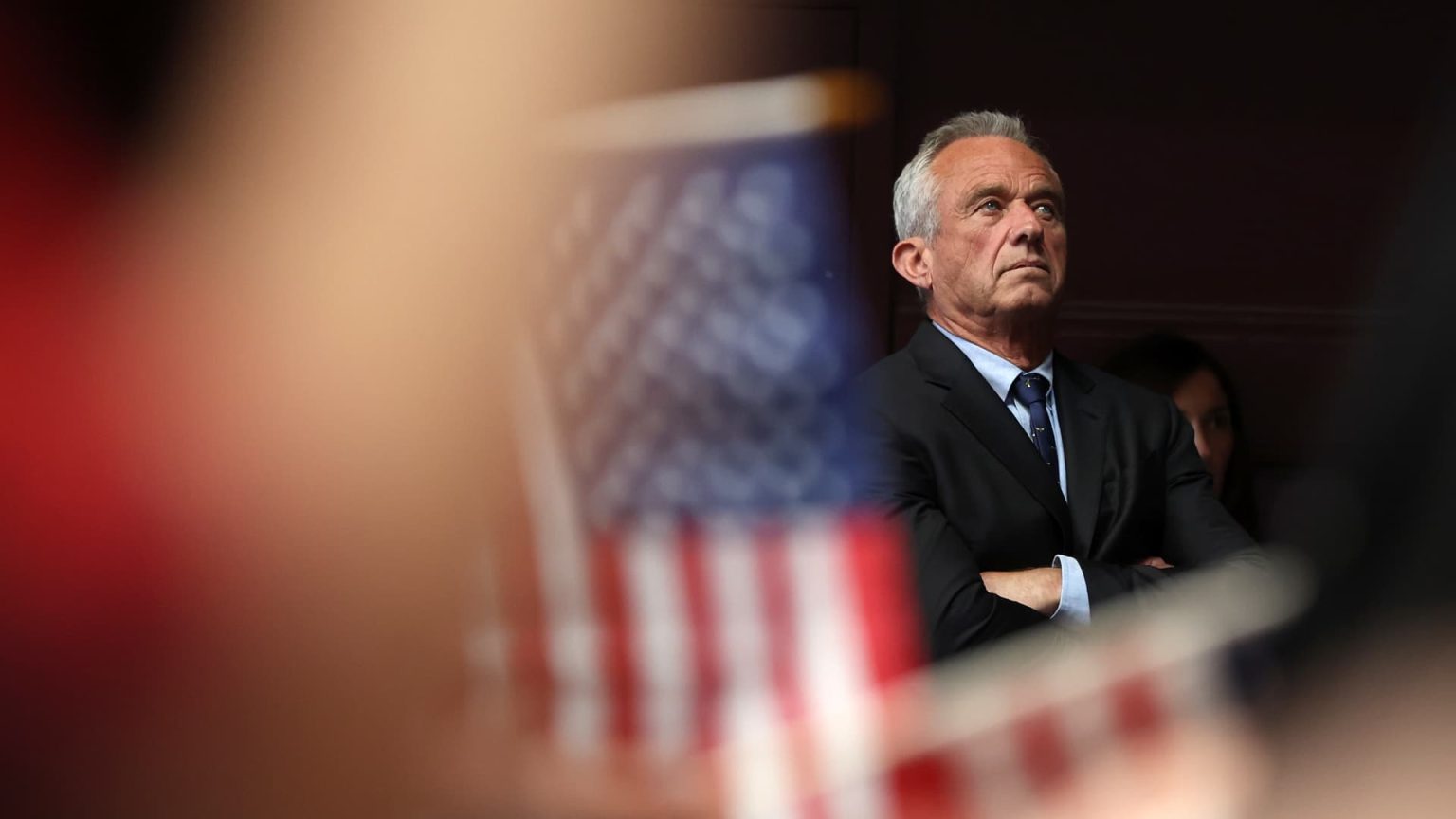Robert F. Kennedy Jr. plans to drop out of the presidential race on Friday and endorse Republican nominee Donald Trump, NBC News reported Wednesday, citing two sources familiar with the independent candidate’s plans.
Kennedy’s withdrawal from the race would end a longshot bid that nonetheless threatened to upend the major-party contest between Trump and his Democratic rival, Vice President Kamala Harris.
The Kennedy and Trump campaigns are working on organizing a joint appearance, one of NBC’s sources said.
Both Trump and Kennedy have events scheduled in the Phoenix, Arizona, area on Friday. Kennedy’s campaign has billed his event, set for 2 p.m. ET, as an address “about the present historical moment and his path forward.”
Kennedy, 70, ran an unorthodox campaign that at times seemed to be simultaneously driven and bogged down by his contrarian views and controversies on a range of hot-button issues.
While he never approached the level of support amassed by the Republican and Democratic nominees, polls of the presidential race showed Kennedy making one of the strongest third-party showings in decades.
In a presidential map where victory can hinge on swaying slim margins of on-the-fence voters in a handful of swing states, Kennedy’s appearance on 19 states’ ballots could have had a decisive impact.
In turn, Kennedy took flack from both parties, who accused him of essentially running a spoiler campaign that would siphon votes away from their preferred candidate.
For their part, Kennedy campaign officials repeatedly expressed a greater kinship with Trump’s operation than Harris’.
Nicole Shanahan, Kennedy’s running mate, suggested in an interview published Tuesday that the campaign was mulling whether to stay in the race or “join forces with Donald Trump.”
The problem with continuing the third-party campaign, Shanahan explained, was that they “run the risk of a Kamala Harris and [Tim] Walz presidency because we draw … somehow more votes from Trump.”
A leaked video in April had already showed a Kennedy campaign staffer calling President Joe Biden, the presumptive Democratic nominee at the time, the “mutual enemy” of Trump and Kennedy voters.
Suspicions about the Kennedy campaign working against the Democratic ticket grew significantly in July, when another leaked video showed Trump telling Kennedy, “I would love you to do something. And I think it’ll be so good for you and so big for you.”
The Washington Post later reported that Kennedy had held talks with Trump about possibly endorsing the Republican’s campaign and, if he wins, joining his administration.
Trump in that video also said he agreed with Kennedy, who has spread debunked anti-vaccine claims for years, about childhood vaccinations.
Critics have frequently accused both Kennedy and Shanahan, the ex-wife of Google co-founder Sergey Brin, of trafficking in dangerous conspiracy theories, especially about vaccines.
Medical organizations overwhelmingly say childhood vaccines are safe. A 2024 World Health Organization study found that immunization efforts have saved over 100 million infant lives in the past half century.
Running as an independent after withdrawing from the Democratic primary in late 2023, Kennedy campaigned as an alternative to the mainstream political binary.
He leaned heavily on his resume as an environmental lawyer and activist, presenting himself as a slayer of corporate giants and a voice for disillusioned voters across the political spectrum.
His political stature may have been boosted by his surname. A scion of the Kennedy political dynasty, RFK Jr. is the son of former Attorney General Robert F. Kennedy and nephew of former President John F. Kennedy, both of whom were assassinated.
Kennedy’s wild personal life also provided a steady stream of human interest that regularly thrust him back into the spotlight.
In a recent interview with controversial comedian Roseanne Barr, Kennedy recounted how he had once planted a dead bear cub in Central Park — acquired during a falconry expedition north of New York City — and staged it to look like it had been struck by a cyclist.
That story, which aligned with reports from 10 years earlier, came weeks after Kennedy reportedly apologized to a woman who had accused him of sexually assaulting her in the late 1990s.
That same month, Kennedy stirred a backlash when he tweeted, without being prompted, that, “As President I won’t take sides on 9/11 or any of the other debates.”
Read the full article here










